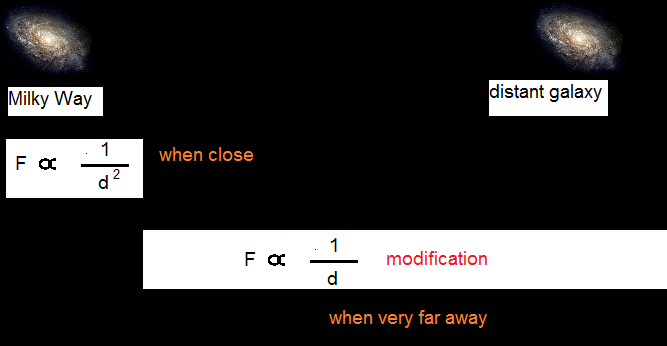What is the name of this new theory of gravity? Hint:
Although the roots of this idea go back further, the hypothesis was formally
proposed by a Dutch physicist sometime after 2008.
The idea came from Erik Verlinde and is known as
Verlinde's hypothesis of gravity or simply Entropic gravity or
emergent gravity
In this unit, we have described the behavior of gravity using
the inverse square law. How does this idea deviate from that law?
Verlinde's hypothesis still uses the inverse square law
when considering local distances (say within our galaxy) but when distances
become extremely large (like between galaxies) ... and the effects of gravity
are extremely weak, the inverse square law is replaced with just an inverse
relationship. This modification only changes things when considering
distances on an intergalactic scale.

What purpose does this new hypothesis serve? That is,
there must have been some reason to bring up a new idea that suggested
something may be wrong and/or unexplained in current theories that required a
look at this new hypothesis.
Yes, this hypothesis eliminates the need to invoke the concept of dark matter.
In the last unit, you will see that astronomers believe there is a lot more
matter that we can NOT detect than the stuff we can see. This invisible
stuff is called dark matter and suggests that everything we see is only
a tiny piece of what is out there. Verlinde's hypothesis claims that all
the things we see that suggest the existence of dark matter can, instead, be
explained by a re-understanding of the way gravity works. This would
certainly make things easier since no one has a clue what dark matter really
is.
Has this hypothesis been tested? Is it currently
accepted in the academic community?
Actually Verlinde's hypothesis has passed a test. Click
here. However, this new idea is very controversial and far from
academic acceptance. Newton and Einstein are still the top dog!